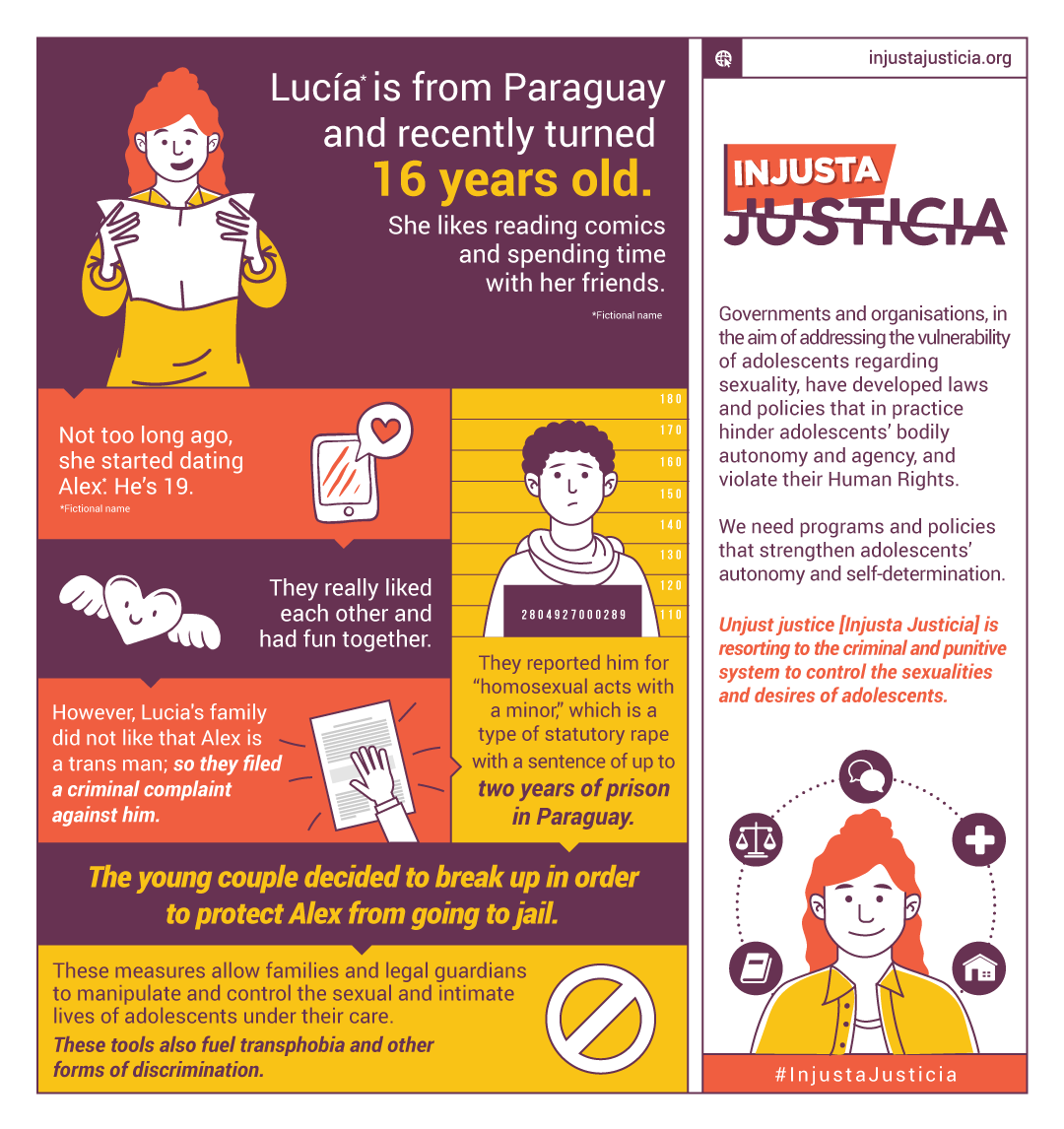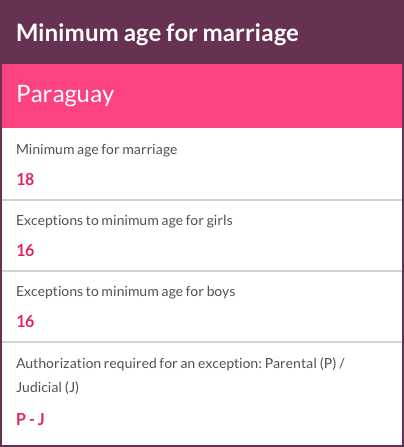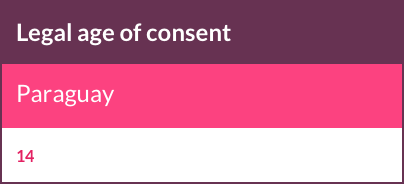Lucía
Click here to get a full description of the infographic.

In Paraguay, the legal age of consent is 14. However, the criminal code contains the criminal definition of “homosexual acts with a minor” (article 138). This definition punishes any person of legal age who has “engaged in sexual acts with a person of the same sex” who is between “14 and 16 years old” and is punishable by up to two years of imprisonment or a fine. This is a discriminatory criminal definition as it provides for an aggravated form of statutory rape (article 137) with a higher penalty, which those under 18 cannot avoid. That is, the definition of the crime is discriminatory because of sexual orientation.
In Lucía’s case, this criminal definition was manipulated and used by her parents to pull her apart from Alex. During the judicial process, after opening the prosecution file, both the parents and the prosecutor were very clear in saying that if the couple separated, the criminal proceedings would stop. To make sure the couple would break up, they devised alternative solutions to the criminal proceedings such as forbidding Alex to come near Lucía, among other things. Lucía’s wishes or feelings were not considered at any point during the process. On the contrary, Lucía and Alex were forced to split to avoid criminal consequences.
Situations similar to this happen in countries such as Argentina, Venezuela and Mexico, where the criminal system is manipulated to “split” couples of adolescents and thus control their lives.


-
The mere existence of criminal definitions like this one is discriminatory because of sexual orientation and/or gender identity, and the processes derived from it are usually strongly driven by homo-lesbo-transphobic prejudice and violence. Therefore, it is necessary to prevent the criminal system and the criminal procedure from being used as a weapon to further discrimination based on sexual identity, sexual orientation and gender expression.
-
It is necessary to provide a comprehensive sex education program that enables the discussion of sexuality issues respecting adolescents’ progressive autonomy. Parents and public officers must take an active role in the comprehensive sex education systems to prevent the use of criminal process and the criminal system as a form of “punishment” or control over the adolescents’ decisions on sexuality. This would also help overcome the silence and taboos associated with sexuality.
-
The states need to evaluate the application of punitive policies to identify possible unintended effects or consequences. These consequences may have a disproportionate impact on the sexual autonomy of adolescents and/or the protection of their human, sexual and reproductive rights.
The Injusta Justicia campaign seeks to promote reflection on the limits of criminal law and punitivism as a defense strategy for sexual and reproductive rights, particularly those of adolescents. The campaign aims, among other things, to put the unforeseen consequences of the unrestricted application of criminal regulations and the impact this has on the autonomy and lives of adolescents under the spotlight. Injusta Justicia doesn’t have – or presume to have – all the answers but intends to inspire debate and to have the conversations we need as feminists to propose transforming strategies and alternatives focused on the survivors. We invite you to take part in this discussion.
Sexual and reproductive rights policy and regulatory framework in Paraguay:
Policies that could have an impact on the lives of adolescents in the region: